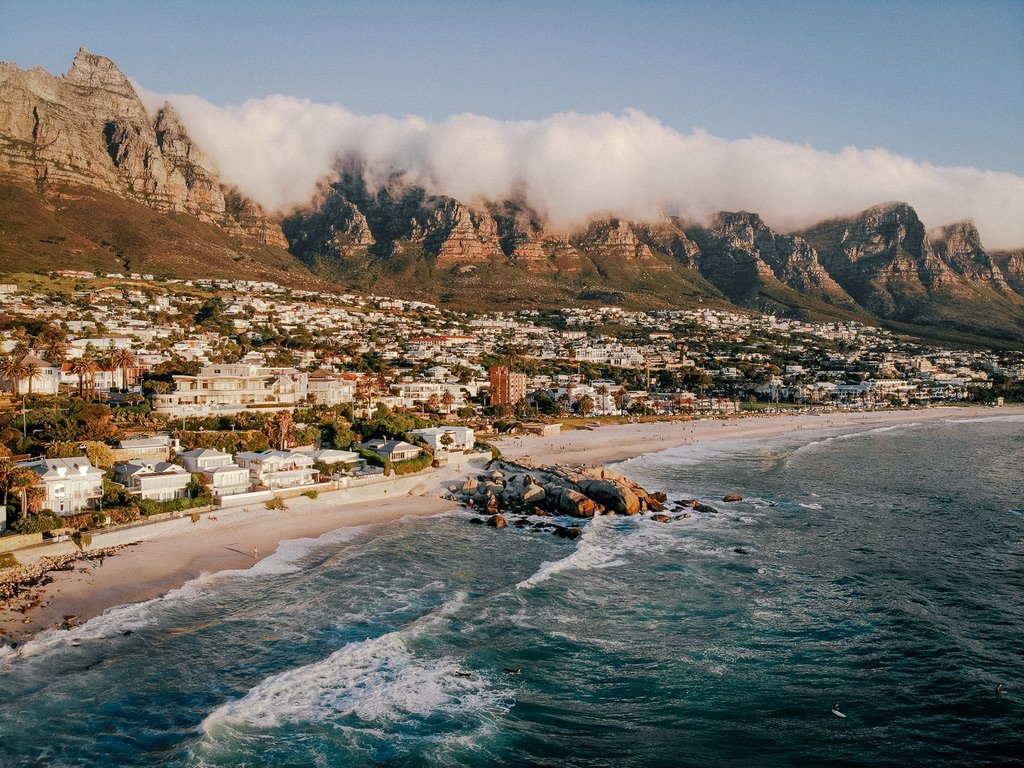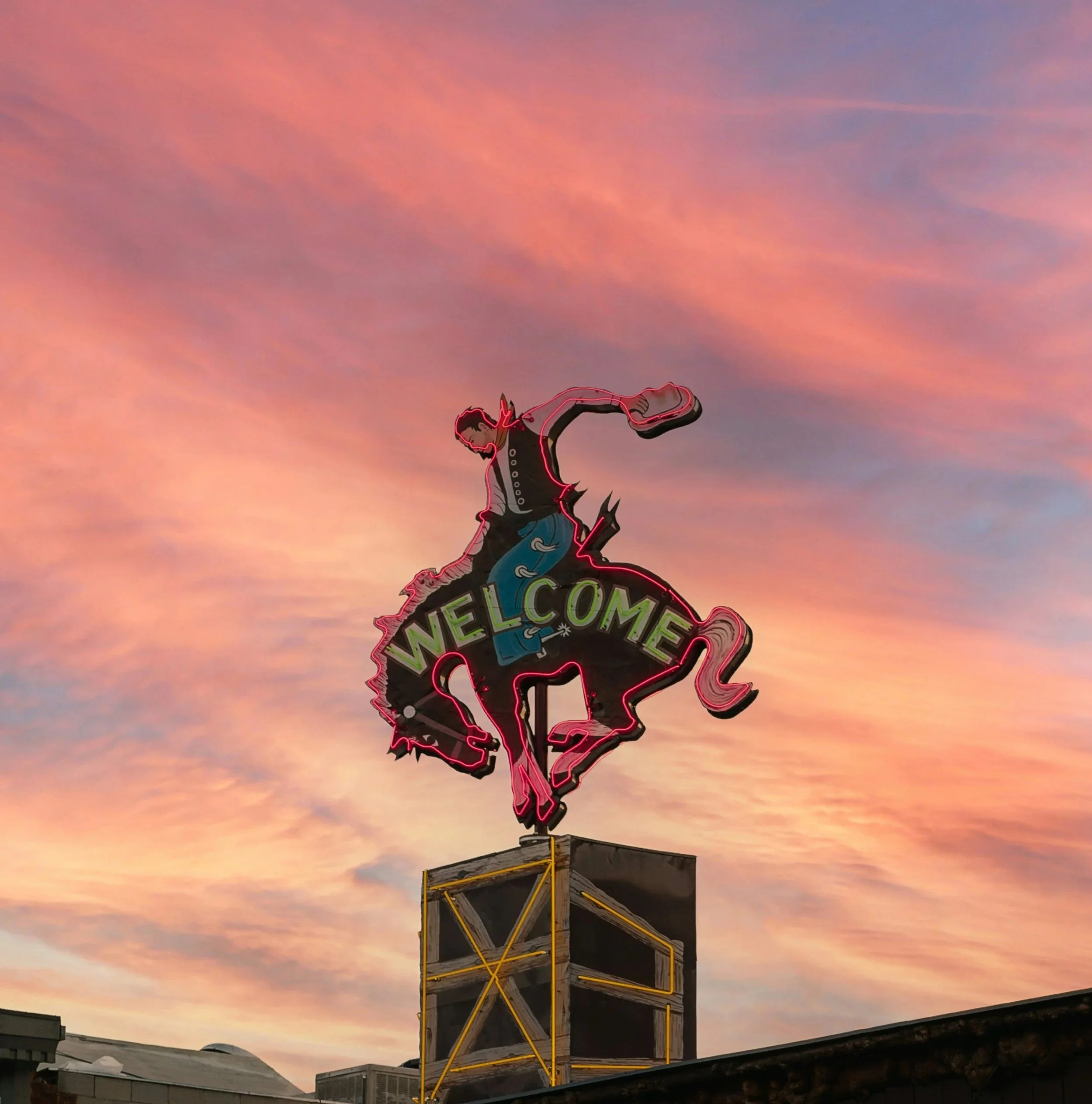To the Thai Woman On the Waterfront

Your hands touch my bare skin. They press, stroke, rub.
“Pressure okay?” you say, the English heavily accented. I recognize the intonation immediately.
“Khon Thai ka.” The words leave my mouth in a strange way—muffled from the pillow pressed around my face, and rusty from disuse.
Your fingers pause. After all, I don’t look Thai. I thought you were Chinese, you respond in our mother tongue.
People always think that.
It’s because they can’t tell us apart. To them, we’re all the same. Especially here.
I know the feeling. Since I’ve arrived in South Africa, not a day goes by without some cat-called “ni-hao,” a question if sushi is Thai food, or a suspicious look thrown in response to an innocent cough. Even in a place coined the Rainbow Nation for its diversity, we’re still exotic, equally fetishized and demonized, the scapegoat for the ongoing pandemic.
Do you live here? There’s a simmering curiosity beneath your simple question. The Thai community in Cape Town is small; it must be rare to get a new customer from the homeland.
No, just visiting.
You knead at the knots in my shoulder blades, finding the tension held between the tissue. I thought you might be one of Uncle’s girls.
Who?
The ones from the bars in town. They’re about your age. Which province are you from?
I swallow the realization that you might think I’m an escort. Bangkok, I reply, though I haven’t lived there in a decade. It’s an easier answer than the truth.
Ah… A Thai girl in the Waterfront alone? I sense you calculating, trying to figure out if I’m one of those hi-sos (Thai slang for high society) on vacation. Back home, we’d be from different worlds: one of us might live on Thong Lor, the other might work its night shifts. “Thais aren’t racist; they’re classist,” my mother used to say. In my experience, they’re both. I recognize the rising discomfort in my chest—the same sensation when American friends called me a “princess” for growing up with a driver and a maid. That mixture of needing to defend myself coupled with the slow burn of shame.
So I play the role of the naïve traveler, the casual tourist. I ask about climbing Table Mountain, going on safari, and the penguins near the Cape of Good Hope. I skip the part about how it’s my seventh or eighth visit here, how a scuba-diving trip half a decade ago had inspired a departure from the gilded cage of a Hollywood career to backpacking solo across the region. The experience kickstarted a life on the road of writing and photography; and diving into the country’s waters and history has left a certain melancholy seeping deep into my soul. In the people, places, and faces I’ve come to know here, there’s a sense of yearning, of longing but never quite belonging. As a Thai person who immigrated to America, as a third-culture byproduct of multiple continents, I know the feeling all too well—perpetually at home everywhere and nowhere.
I struggle to find the words to explain this story to you. Perhaps I’m afraid you’ll think I’m a privileged traveler on a tour of self-discovery, idealizing a country that’s not my own. Or perhaps it’s because I already feel so vulnerable, lying naked on the massage table.
Eventually, I turn the questions around. How is it living here?
Eh, the money used to be better. It was four rand to the baht when I moved. Now it’s barely two. But that was ten years ago.
That’s a long time to be away. And yet, it’s the same amount of time I’ve been away from Thailand, though I know our reasons for leaving were not the same.
I feel you shrug. Some Thais have been here for thirty.
Wasn’t that before—I wrack my brain for the Thai term for ‘apartheid’—the new government? That must have been tough.
Not really. It was safer back then.
Your comment takes me by surprise. With my eyes closed, they sound like words I’d heard from older, white South Africans.
You tell me that you came here to make money, but you haven’t seen your kids in years—they’re almost adults by now. You don’t know which visa the boss put you on, and now there are issues. The South African government is no longer granting asylum cases. After all, Thailand’s not at war with anyone. We’re known for being paradise for The Beach seekers and a place for backpackers to Eat, Pray, Love—one of the few destinations in the world where the South African rand’s purchasing power goes a long way. “Why would anyone want to leave?” foreigners ask me in Thailand—after all, Thailand itself translates to “Land of the Free,” the name Siam permanently adopted in 1948, the same year apartheid was adopted in South Africa.
“Your tone is light, but the pressure from your hands is heavy.”
You say that when you first arrived in Cape Town, you lived in a house in Milnerton with other masseuses, until frequent break-ins and a violent robbery led the boss to move you here, to a room in the back. It’s convenient—you don’t have to ride the public taxi to work, there are massage beds to sleep on, and you can clean the bathrooms as you go. Plus, it’s in the Waterfront, an area crawling with tourists. As safe as can be.
Your thumbs pause at the base of my neck for a heartbeat too long.
That doesn’t stop the men from trying though.
You recount how an incident with one customer left you leaning on the trope infamous to our people. You pointed at your groin and told him, “I have the same as you!” The man swayed between lust and disbelief, but stopped his advances. Your tone is light, but the pressure from your hands is heavy. I can’t help but wonder if the event happened in this room, on this very bed. Will you have to make the bed after I’m gone? Will you have to sleep in it, too?
I grimace as your fingers dig into my neck, and from the guilt deep in my gut. Your situation reminds me of my father’s: He ran away from home to work at a Thai restaurant and lived in a storage room above. He chased freedom from the limits of his common status in Thai society—only to wind up even more of a prisoner in a cage of his own making. I wonder if you knowingly chose South Africa, back then a nation newly freed from apartheid, or if you were simply handed a destination by some visa fixer, and could’ve just as easily wound up in Australia instead.
“Of the distance between our birthplace, between us; our storylines simultaneously shared and divergent, our understanding overlapping yet at times unbridgeable.”
Months later, I’d learn the strange links between the two countries, between here and home. I took trips to the SA-Thai Slave Heritage Reflection Center—near where you used to live—and the Iziko Slave Lodge museum, where names with Thai roots were carved clearly into history, though seemingly forgotten otherwise. Just like Cape Town, our ancient capital city of Ayutthaya was a hub for the slave trade. Portuguese, Dutch, and British ships would stop over in the Cape to refuel on the way to Asia and back, heavy with spices and slaves. Our people once arrived on this peninsula as property, before their bloodline became diluted so deeply it disappeared into the Cape Coloured community, forced underground from existence like the Camissa river, the “sweet water” buried beneath the earth by European settlers. We might be called neocolonialists and bat-eaters now, but I wonder how many local perlemoen poachers have fragmented Asian roots themselves. And did any South Africans make it over to Thailand, too?
You clear your throat, pulling me out of my thoughts. Did you hear about Khun Joe?
Who?
The owner of the Thai restaurant. He and his older brother were kidnapped and held for ransom. When they couldn’t pay, they killed Joe and dumped his body. The brother survived but is still in the hospital. He’s been here for about thirty years, but Joe had just moved from Thailand. They’re having his funeral soon.
My stomach twists. I didn’t see it on the news at all…
The news said they were Chinese. You lean forward, elbows digging. Your back is very tense.
I let out a labored breath as your entire body weight presses into my spine. Just a lot of laptop work.
I’ll put on some tiger balm. Try not to carry too much. You fall silent, releasing. Then, When are you going home?
Soon, I reply.
Our time comes to an end. Before I can see your face, you slip out, giving me privacy to change. I pull on my clothes and a smile—a gesture so inherently Thai. We smile even when angry, even when heartachingly sad. It used to frustrate and infuriate me, until I came to recognize the duality of the gesture. That it was derived from an acceptance of the bond between joy and sorrow, just like now: the comfort of home when meeting a fellow Thai abroad, yet the bitter taste of homesickness, too. Of the distance between our birthplace, between us; our storylines simultaneously shared and divergent, our understanding overlapping yet at times unbridgeable.
It's not until I’m paying at reception that you show up again. Most of your face is hidden behind a mask, but your eyes are sharp, and your eyebrows sharper, lined the same way my grandmother used to draw hers.
Have you eaten?
Your question feels delayed. In our language, the phrase is usually a greeting.
I shake my head, and you hold out a plastic bag. Inside is a neon green lunchbox and a metallic spoon, the kind typical at noodle stalls back home.
I hope you haven’t forgotten how to eat spicy. Your eyes smile, and you disappear into the back.
Outside, I squint as I readjust to the sunlight. The Waterfront teems with activity, the marina as full of commotion now as I imagined it to be centuries ago. The background noise of the Mother City hums in the distance, the vibrating buzz of dialects descended from Indigenous peoples, European settlers, and immigrants in a place meant to be transitory. Beyond, a layer of fog—the ‘table cloth’—spills over Table Mountain. I feel that familiar tug of longing again, of distance from places I once called home. It’s as if the concept of the unreachable has been etched into this landscape of jagged peaks and two wild oceans, the transience embedded into the frontier settlement at the tip of a continent, a pitstop for ships on their journey to elsewhere.
Later that day, when the loadshedding strikes and the city plunges into darkness, I crack open the green container by candlelight. The smell wafts up my nostrils, that distinctive burn of Thai chili.
The food makes me choke. My eyes water—from spice, and something more.
About the Author
Pier Nirandara is an author, travel writer, film producer, and underwater photographer. She began her career as Thailand’s youngest author of three #1 bestselling novels with 200,000 copies sold in multiple languages. Pier has represented literary clients at ICM Partners, served as Director of Development at Sony Columbia Pictures, and as VP of Film & TV at A-Major Media, Hollywood’s first Asian-American driven production company. As a PADI AmbassaDiver™, she leads expeditions to swim with marine wildlife, and is currently working on a new novel. She can be found in Los Angeles, Cape Town, and @piersgreatperhaps.
Read Pier’s “Behind the Essay” interview in our newsletter.
Header photo by Pier Nirandara.
Edited by Aube Rey Lescure.











